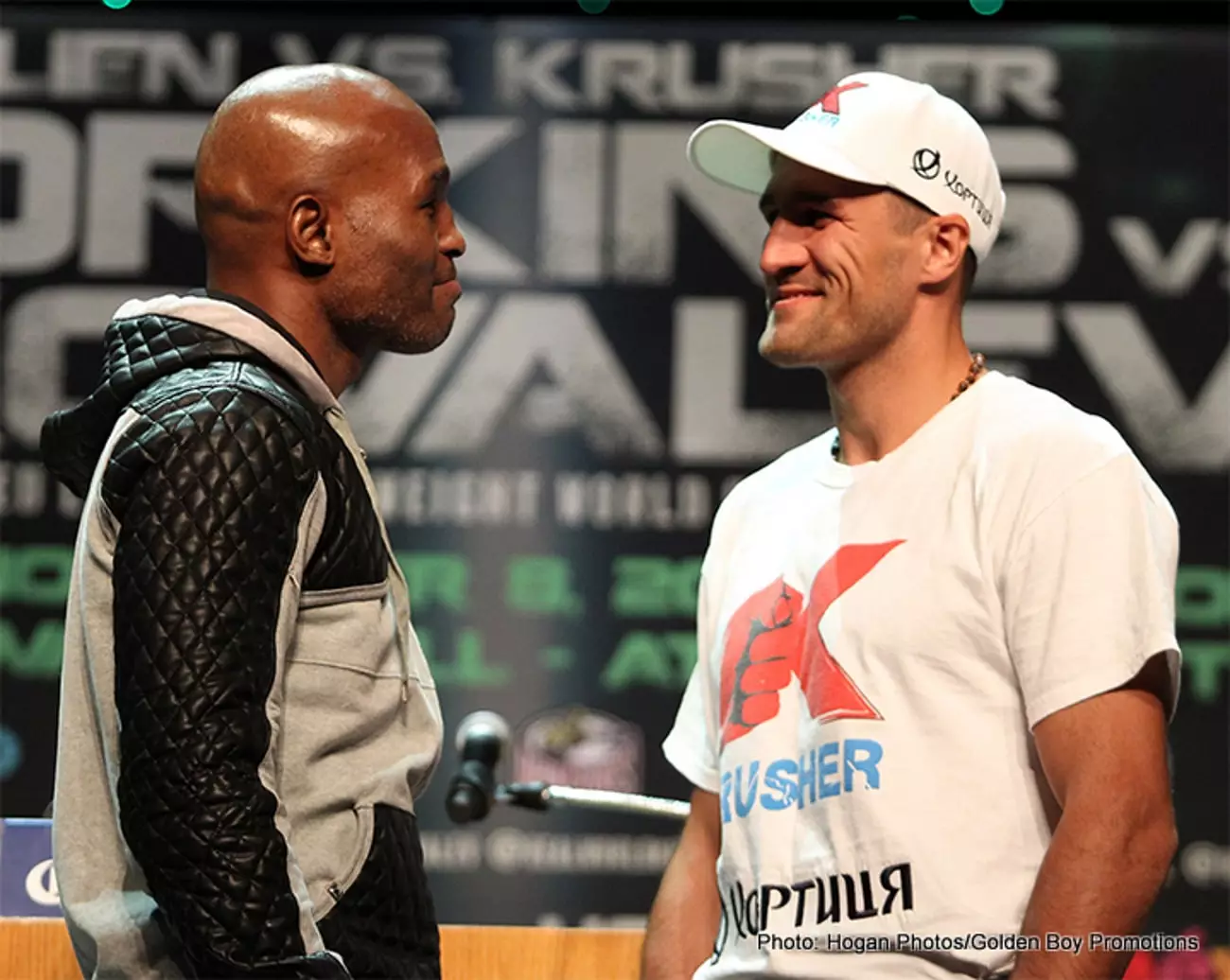On this day, we reflect on a historical date in the sport of boxing, marking a decade since Bernard Hopkins faced Sergey Kovalev in a bout that tested the limits of age, skill, and legacy. When the fight was announced, it generated significant buzz, but also palpable concern—could the 49-year-old Hopkins, a revered figure in the boxing world, truly stand toe-to-toe with the younger, seemingly invincible Kovalev, affectionately dubbed “The Krusher”?
Hopkins had built a legendary career grounded in his penchant to defy expectations, besting younger foes like Kelly Pavlik and Jean Pascal. However, entering the ring against Kovalev was a completely different challenge, especially considering Kovalev’s track record: at the time, he was undefeated with a powerful reputation, coming off a series of knockout victories as the WBO light-heavyweight champion. For many, the encounter felt like an exhibition of courage overshadowed by the fear of a potential collapse of an icon.
The fight, branded as “Alien vs. Krusher,” took place at the historic Boardwalk Hall in Atlantic City. Fans anticipated an explosive battle, expecting Kovalev to impose his will with his trademark ferocity. Surprisingly, the culmination of their anticipation resulted in a bout that was one-sided and strategically cautious.
From the very outset, Kovalev demonstrated his dominance, dropping Hopkins in the first round with a well-placed right hand, setting the tone for the remainder of the fight. At 49, Hopkins faced more than just physical challenges; he grappled with the oppressive weight of age that seemed to eclipse his renowned strategic prowess inside the ring. While many expected violence, they were instead treated to a masterclass in cautious boxing from Hopkins, a stylistic shift that highlighted his sense of survival rather than aggression.
In each of the 12 rounds, Hopkins adopted a defensive strategy, carefully maneuvering away from Kovalev’s punishing blows. Yet despite his best attempts, the relentless pressure from Kovalev became impossible to counteract. The lopsided judges’ scorecards—120-106, 120-107, 120-107—mirrored the narrative crafted within the ropes: Kovalev’s dominance was unmistakable, while Hopkins was forced to navigate a treacherous path fraught with heavy blows and few opportunities for offense.
The outcome of this match was significant: Kovalev claimed three championship belts, emerging as the dominant force in the light-heavyweight division, while Hopkins, the great Bernard Hopkins, had his mortality publicly showcased. The fight served as a poignant reminder of the passage of time in sports, underlining that even the greatest warriors must eventually face their limits.
Hopkins had already secured a place in boxing’s pantheon of legends, yet this bout would become a critical chapter in his legacy—a moment that ultimately showcased both ambition and vulnerability. After the fight with Kovalev, he had the opportunity to retire while still in good standing following his previous victories. However, Hopkins chose ambition over retirement, stepping into the ring one last time against Joe Smith Jr. Just over two years later, Hopkins would experience the full force of reality when he was unexpectedly stopped in a manner that appeared almost symbolic: being knocked out of the ring itself, a harsh reminder of how swiftly fortunes can change.
As for Kovalev, his trajectory post-Hopkins reflects the difficult nature of boxing, as he too faced upheaval in his career with losses to the formidable Andre Ward. Nonetheless, much like Hopkins, Kovalev remained in the fray, pushing his own limits well into his late 30s and early 40s, competing even as whispers of his declining performance circulated.
This saga serves as a dual narrative: it emphasizes the relentless pursuit of greatness inherent in sports and poses existential questions about age, ambition, and legacy. In boxing, the reverberations of a single fight can cast long shadows, and the 10th anniversary of this pivotal clash invites us to contemplate the cost of perseverance against the inexorable march of time.
Legacy is complex, and for both Bernard Hopkins and Sergey Kovalev, the echoes of this encounter remind us that every fighter ultimately faces the ring’s most formidable opponent: time itself.

